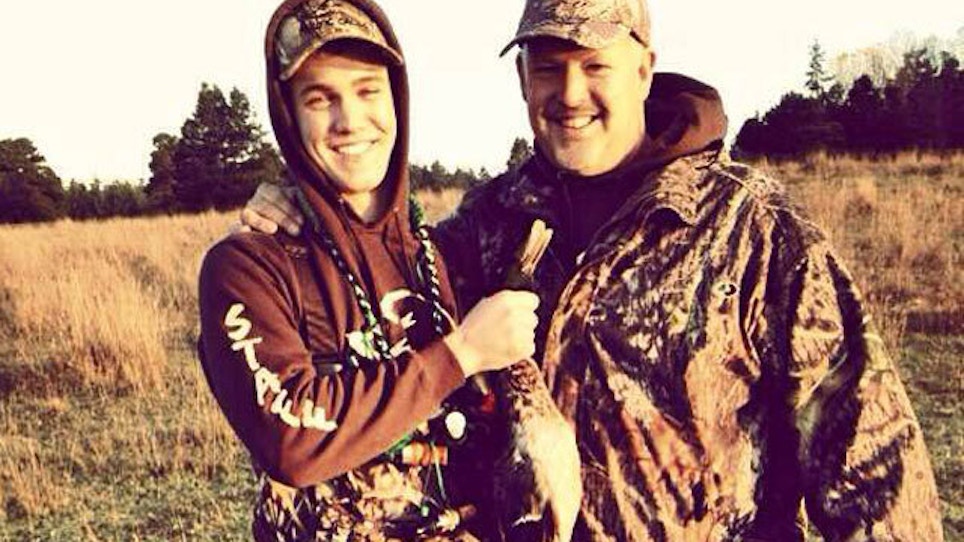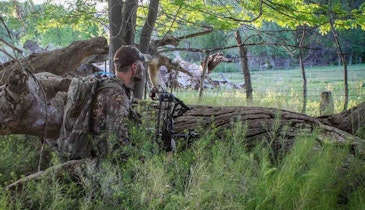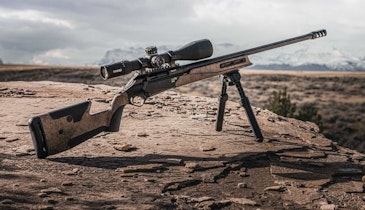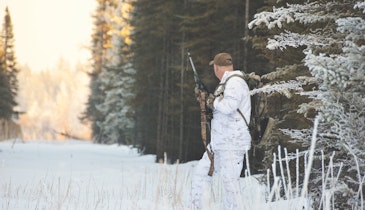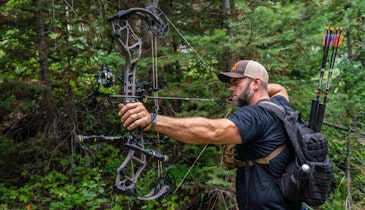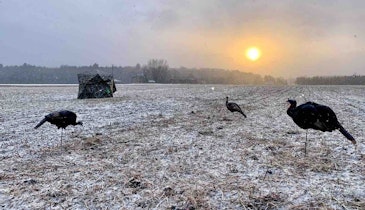Life is all about balance. This statement holds true for most, and it certainly resonates with me. I try my best to juggle my studies while allowing myself to enjoy the things I love. This became a little harder as I transitioned into a collegiate setting at Whitman College, located among the Blue Mountains in Walla Walla, Washington. This small liberal arts college tested my intellectual abilities with its rigorous coursework and intense competition in the classroom. It also allowed me to enjoy some great hunting opportunities in eastern Washington while still acquiring an education. It was my first year hunting on the east side of the Cascade Mountains, and it certainly was not what I was expecting. It provided me with a new insight on public hunting, as I got to experience it firsthand. After hunting the McNary Wildlife Refuge nestled in the Tri-Cities, I was able to better appreciate the hunting opportunities that I have back home on San Juan Island, a small island off the coast of northwest Washington.
Many differences become evident when assessing hunting the public land in eastern Washington and the small private oat fields in Friday Harbor. The island has limited places to hunt. There is, in fact, no public land offered, and all hunters must rely on family or friends for permission to hunt on their land, unless they operate a farm on their own.
There is also not much work involved hunting the “island way.” A normal morning consists waking up to an alarm around 5 a.m., loading the truck and driving no more than 10 minutes to our hunting location. We then put out no more than five dozen decoys before shooting light approaches. The variety of species is outstanding considering the restrained area. I remember a few years ago that in one pass, a specklebelly, snow, and a greater fell to the ground after they finished 20 yards from our layout blinds.
Chasing waterfowl usually occurs in the field setting with occasional marsh morning hunts for puddle ducks if one is lucky enough to get permission from the landowner. Competition is scarce on the island, and if there are others wanting to hunt the same spot, we usually end up sharing the hunt. The lack of pressure means birds are not as wary, and little calling and decoys are needed to coax in these confident birds. Nonetheless, this means that birds find safe havens where they stay for days and sometimes weeks without any pressure from hunters. Island hunters also face a predicament that is uncommon on the mainland: When it snows, you better head out to go deer hunting, because the birds congregate in False Bay, where they feed on shellfish and small bait balls.
Transitioning into the eastern Washington hunting scene was a whole new experience for me. Hearing about the great opportunities to chase waterfowl in the Tri-Cities, I called up Mark Purser, a veteran Pacific Calls pro staffer who has hunted Millet Pond before. He suggested that I get to the refuge the day before and camp the night, so I packed up the bags and left Whitman after classes.
I scouted the area before it closed and made a quick trip to Sportsman’s Warehouse. Then parking my car as first in line at 4 p.m., I then made “bed” before calling my roommate to inform him where I was and when I would be back, just in case.
I woke up at 4 a.m. to about a dozen cars packed in line behind me.
“Knock knock knock…” I was a little startled by a camo-covered figure outside my window. “Where are ‘ya hunting?” he asked.
“Blind four,” I responded.
His eyes lit up, and I knew I had made a good decision of where I would be hunting. After some talk and persuasion, I agreed to let him and his friends hunt with me — they seemed like veteran hunters who knew what they were doing. With collaborated efforts, my three new friends and I trekked about a mile with 12 dozen decoys before setting up. Nine dozen floats, a dozen field mallards, and two dozen new Dakota Decoy floaters were the final product of our endeavor.
The sight of a drake mallard dropping in with his bright orange feet was the target of the first shot right at hunting light. “Looks like the Northerners are in!” someone said.
The wind was making it very difficult for birds to close in. At 50 mph (no exaggeration), this was going to be a tough day.
There were plenty of migrating ducks in the area and they were working the spread well, but the gusts of bone-chilling wind made it hard for them to finish their final descent. We decided to change up the decoy spread to make a larger landing hole and set up on the side for pass shots. Our efforts paid off, and we had our limit within the next few hours. My band of friends and I then packed up and hauled our gear back to the rigs where we exchanged phone numbers and said our farewells, promising to be in touch with one another next time we went out.
I learned a lot from my first experience on public land. The competition is fierce, so aggressive calling is necessary. I made sure to “plead” with the ducks with a whiny and “come over here” kind of tone with my Pacific Call single reed ITF. It is also important to be better than the guy next to you. What I mean, is that you need to make sure there is something unique and different than every other spread and setup. This might include using motion decoys or maybe adding in some black duck decoys to add some contrast to the spread. This also might mean that more work needs to be put in to perfecting your setup, but more birds will be the reward in the end. It is also frustrating to note that guides and outfitters have private land locked up, and it can be very difficult for weekend hunters to gain access to private farmland. This is quite contrary to the island way of hunting, since close connections lead to great hunting opportunities through just a phone call or encounter in the grocery store.
There are certainly some things that just don’t change no matter how far you are away from home. Sharing the passion for the outdoors with family and friends is always something every hunter should enjoy, no matter where. You also should utilize the same general tactics when chasing waterfowl. Birds are birds, and no matter where you go, waterfowl will usually react to the same stimulus (sometimes not in all cases). This includes good concealment, sufficient scouting and smart calling. But most importantly, with birds or no birds, we hunters are the ambassadors for the outdoors, the stewards of the land. We are responsible for passing on the hunting tradition to others.
Each marsh, field, or pond offers a unique twist. To be honest, I don’t care where I am as long as I get away to enjoy the outdoors. However, it is a special experience to be able to hunt this island. Its accessibility, bewildering geography, and exclusiveness are sure signs that I live somewhere special. Take a moment to ask yourself — where is your somewhere special?
